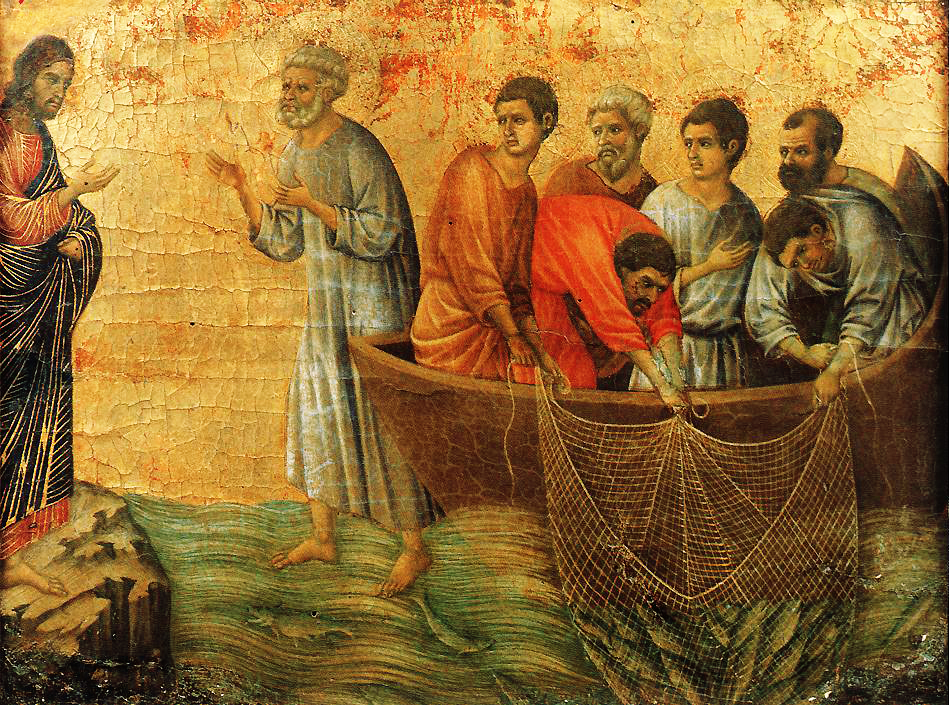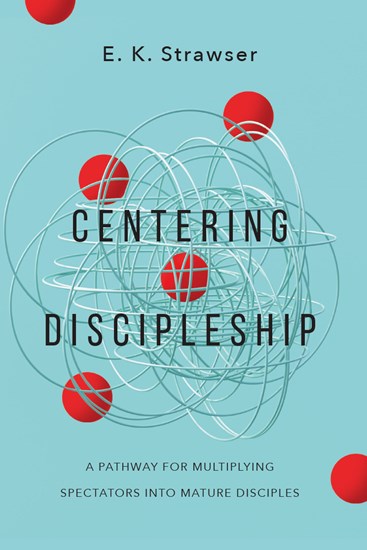This article is the second in a miniseries within our ongoing Guide for the Perplexed series, in which we define a weighty theological term, and describe why it matters to Christian communities.
Discipleship is probably the most overused but least understood term in the Christian context today. Churches and church leaders are full of good intentions to “make more disciples” and “make disciples that make disciples” but are often unable to be intentional about how to go about doing this. “Disciple” is interpreted as synonymous with “believer,” “church attendee,” or “brother or sister in Christ.” “Discipling” someone is equated with “helping,” “mentoring,” or “teaching” someone. “Discipleship” is used to mean a church program, teaching from the pulpit, or fellowship in the church. We often think that discipleship is happening in our church because Sunday service attendance is steady, a Sunday school lesson is well attended, baptisms are occurring, or, for the most part, the members of the church live drama-free lives.
We understand that discipleship is important to the life of the church, but I think we actually miss the fact that discipleship is vital to why the church exists in the first place. Dietrich Bonhoeffer writes in his seminal work The Cost of Discipleship, “Christianity without the living Christ is inevitably Christianity without discipleship, and Christianity without discipleship is always Christianity without Christ.”
Niel Cole, in Ordinary Hero: Becoming a Disciple Who Makes a Difference, states,
“Ultimately, each church will be evaluated by only one thing—its disciples. Your church is only as good as her disciples. It does not matter how good your praise, preaching, programs or property are; if your disciples are passive, needy, consumeristic, and not [moving in the direction of radical obedience], your church is not good.”
So, how do we begin to understand what discipleship really is? And once we understand it, how do we begin to connect it to the life of our church?
While I write about this more fully in my book Centering Discipleship: A Pathway for Multiplying Spectators into Mature Disciples (InterVarsity Press), I recommend starting with these three crucial points about the term discipleship: 1.) the definition of a disciple 2.) the purpose of a disciple and 3.) the identity of a disciple. In other words, we’ll look at what discipleship is, how we do it, and the “why” behind it.
If discipleship is the process of forming disciples of Jesus, then we need to understand what a disciple is. I write in Centering Discipleship:
“In all four of the Gospel accounts, from the very beginning Jesus calls ordinary people to follow him. In the New Testament, “following” and “discipleship” are synonymous because they’re translated from the same Greek word, mathētēs. As such, Matthew 16:24 can be translated several ways:
Whoever wants to be my disciple must deny themselves and take up their cross and follow me. (New International Version)
If anyone would come after me, let him deny himself and take up his cross and follow me. (English Standard Version)
If any of you wants to be my follower, you must give up your own way, take up your cross, and follow me. (New Living Translation)
The word mathētēs refers to a learner, apprentice, pupil, adherent, or follower. The apostle Paul and other New Testament writers further define being a follower and disciple of Jesus by using the word mimētēs, which translates as “imitating” and is where the English word “mimic” comes from. Thus 1 Corinthians 11:1 can be translated as:
Follow my example, as I follow the example of Christ. (New International Version)
Be imitators of me, as I am of Christ. (New Revised Standard Version)
Be ye followers of me, even as I also am of Christ. (King James Version)
Therefore, when we look at the entirety of the New Testament and its references to being a follower and a disciple, it’s safe to conclude that to the first-century Christians, being a follower of Jesus was about imitating Jesus.”
A disciple, then, is simply an imitator of Jesus; which means that discipleship is the process by which people are formed by imitating Jesus. Imitating Jesus means to be formed and informed by his whole incarnation, imitating him in the way of his life, death, and resurrection of self-giving love.
If a disciple is an imitator of Jesus, then the next clarity we need is: What does this process of imitation do to this person? What is the purpose of being a disciple? What does a disciple look like?
Again, I write in Centering Discipleship:
“So, let’s start by asking that question: What does discipleship look like?
Or, put differently, how would you complete this statement?
‘I know I’ve been discipled because __________.’
Most of us think we’re disciples because we go to church regularly, live a decently moral life, have been baptized, and have perhaps attended a discipleship class. Our internal checkmarks on this list reassure us, and in turn we run others through this same list to assure them they have been discipled. But church attendance, a label of not being “bad,” baptism, and Sunday school participation are not merely what Jesus meant when he called us to be and make disciples. None of these assurances mark us as people who are actively imitating Jesus and intentionally following him.

What it does do is give us a false narrative for what it means to be a disciple of Christ. We think listening to a weekly sermon, abstaining from a list of immoral acts such as murder and adultery, at some point making a private decision to be baptized (whether our parents made it for us or not), and taking a bonus class at church give us a golden ticket to heaven. Discipleship is not about a free pass to heaven or a false retirement as we wait patiently for our time to come.
Discipleship—being a disciple and making disciples—is about becoming more like Christ, taking on both his identity and his praxis. Denying ourselves, taking up our cross daily, and following him (Luke 9:23) means taking on his identity and mission of self-giving love, identified as participating in a sent community of people on mission together. In The Gospel in a Pluralist Society, Lesslie Newbigin writes:
“The task of ministry is to lead the congregation as a whole in a mission to the community as a whole, to claim its whole public life, as well as the personal lives of all its people, for God’s rule. It means equipping all the members of the congregation to understand and fulfill their several roles in this mission through their faithfulness in their daily work. It means training and equipping them to be active followers of Jesus in his assault on the principalities and powers which he has disarmed on his cross. And it means sustaining them in bearing the cost of that warfare.”
The purpose of being an imitator of Jesus is to make more imitators of Jesus. Through imitation, disciples within community grow together in both their spiritual confidence and social competence. They mature in both their deep Christ-like identity AND Christ-like praxis; they know and love God and are known and loved by God AND they live like God in the world around them.
A disciple is an imitator of Jesus and their purpose is to imitate Jesus in a way that makes more imitators of Jesus as they live for the sake of the world around them.
Understanding the definition of a disciple and the purpose of being a disciple ultimately leads us to understanding the identity of a disciple—our “why.” Why should the church imitate Jesus by participating in his self-giving love as a sent community of people on mission together?
Discipleship is about formation for mission. The Missio Dei sends the Imago Dei; the missional God sends his image-bearers out to renew all things for the sake of the world. Greg McKinzie, a missionary in Arequipa, Peru, writes regarding the Missio Dei, “Many churches have begun to advocate a vision of ‘shalom’ or total well-being on a global, societal scale in conjunction with the church’s vital participation in God’s realization of that reality, which is called the kingdom of God.” The theologian Karl Barth notes, “The missionary movement of which we are a part has its source in the triune God himself … We who have been chosen in Christ … are by these very facts committed to full participation in his redeeming mission to the world. There is no participation in Christ without participation in his mission to the world.” David Bosch adds in Transforming Mission, “Mission is a multifaceted ministry, in respect of witness, service, justice, healing, reconciliation, liberation, peace, evangelism, fellowship, church planting, contextualization, and much more … There is church because there is mission.”
Discipleship is about formation for mission because we are imitating Christ into mission. The key to discipleship is this: do you imitate Christ in a way that bears kingdom fruit? Are the people you are discipling imitating Christ in a way that bears kingdom fruit? “I am the vine; you are the branches. If you remain in me and I in you, you will bear much fruit; apart from me you can do nothing” (John 15:5). Abiding in Christ, imitating Jesus, and being formed as a disciple are deeply connected to bearing kingdom fruit. Imitating the character of Jesus leads to imitating the praxis of Jesus. Being formed as a disciple of Christ means we follow Christ in his mission for renewal.
If Dietrich Bonhoeffer posed that Christianity without discipleship is Christianity without Christ, I further his sentiment by offering that discipleship without mission is discipleship without Christ. The identity of the disciple is imitating Jesus that leads to self-giving love for the world around them. Therefore, discipleship in the church is about the entire congregation imitating Jesus that leads the church to connect with and contend for the community it resides in.
Interested in hearing more from Eun on discipleship? Check out episode 5.52 of the Pivot Podcast.




